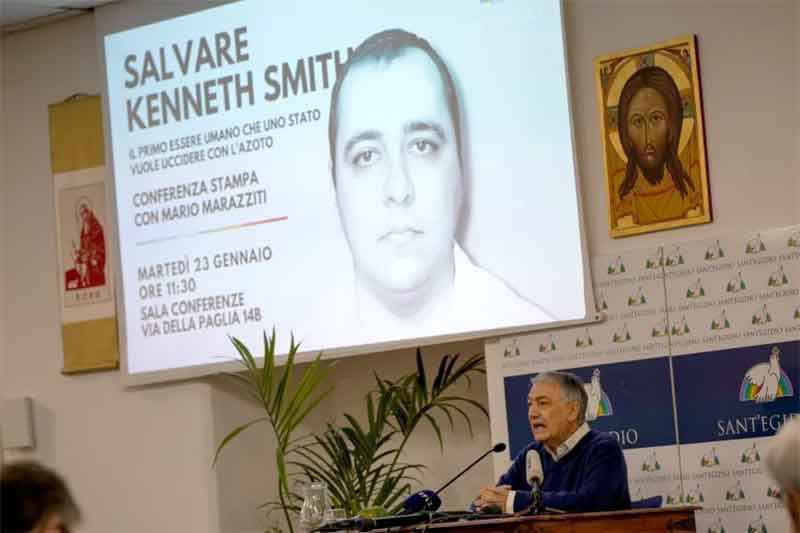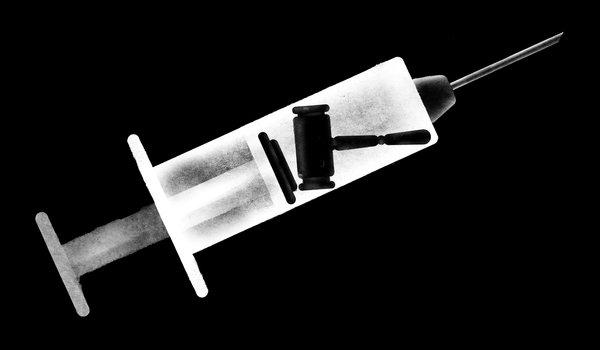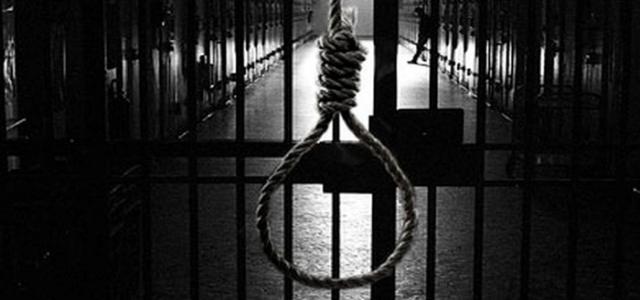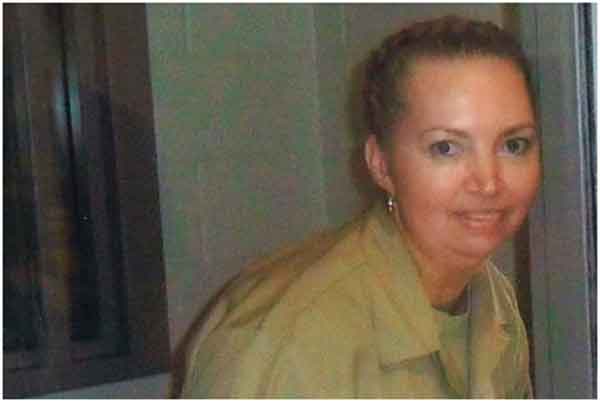
A death row prisoner used his final words to say “humanity had taken a step backwards” before he was killed in a prolonged suffocation condemned as torture.
Kenneth Smith shook and writhed for two minutes on Thursday night as his mask filled up with the nitrogen gas, witnesses said, despite Alabama saying his death would be quick and painless.
Humanity’s Backwards Step
A report by The Telegraph said:
The convicted killer is said to have remained conscious, breathing heavily and gasping for a further eight minutes as his sons and crying wife watched on.
“Tonight, Alabama causes humanity to take a step backwards,” Smith said in his final words. “I’m leaving with love, peace, and light. Thank you for supporting me. Love all of you.”

Smith, 58, was the first person to be killed with nitrogen in a U.S. execution as prisons run out of lethal injection drugs. He was not pronounced dead until 8.25pm, 22 minutes after the gas was first administered.
Steve Marshall, Alabama’s attorney general, insisted that the execution had “proved” nitrogen gas was “an effective and humane method of execution”.
The report by The Telegraph said:
The U.S. Supreme Court denied Smith a last-minute reprieve on Thursday evening after state lawyers insisted he would lose consciousness in seconds and die in minutes.
Sonia Sotomayor, one of three liberal justices who disagreed with the six conservatives who backed the execution said: “Having failed to kill Smith on its first attempt, Alabama has selected him as its ‘guinea pig’ to test a method of execution never attempted before.”
The United Nations’ human rights commissioner last week branded the method, officially termed nitrogen hypoxia, as “torture” and urged the state not to use it.
Smith was strapped to a gurney at the Holman Correctional Facility in Atmore, Alabama, as the nitrogen gas was pumped into a mask he was wearing.
The state had promised that the mask would be airtight but witnesses said they could hear gas coming out of it, likely prolonging the suffocation.
The Rev Jeff Hood, a Catholic chaplain who ministered to Smith, said the execution was the “worst thing” he had ever witnessed.
“Unbelievable evil was unleashed tonight in Alabama,” he said through tears.
He said Smith had eaten a final meal of T-bone steak, hash browns, toast and eggs from the Waffle House chain.
His last meal ahead of the lethal injection attempt in 2022 was fried catfish and shrimp.
Lee Hedgepeth, a reporter who witnessed the death, said: “I have been to four previous executions and I have never seen a condemned inmate thrash in the way that Kenneth Smith reacted to the nitrogen gas.
“Kenny just began to gasp for air repeatedly and the execution took about 25 minutes total.”
John Hamm, the commissioner of the Alabama department of corrections, said Smith’s prolonged suffering was his own fault.
“It appeared Smith was holding his breath as long as he could,” he said. “So nothing was out of the ordinary for what we were expecting.”
Asked about Smith’s writhing, he added: “That was all expected and was in the side effects that we’ve seen or researched on nitrogen hypoxia.”
Smith had previously gone through a botched execution attempt in 2022 when a vein could not be found for a lethal injection.
He was sentenced to death in 1996 after being found guilty along with two others of murdering Elizabeth Sennett, a preacher’s wife, in her own home in 1988.
Sennett was found dead in her home March 18 1988, with eight stab wounds in the chest and one on each side of her neck.
Prosecutors said her killers were each paid $1,000 (£787) on behalf of her pastor husband, Charles Sennett Sr, who was deeply in debt and wanted to collect on insurance. Sennett Sr, killed himself when the investigation focused on him as a suspect, according to court documents.
Speaking after Smith’s execution, Ms Sennett’s son, Charles Sennett Jr, said he had little sympathy for her killer.
“And some of these people out there say, ‘Well, he does not need to suffer like that’,” he told Waay-TV.
“Well, he did not ask Mama how to suffer? They just did it. They stabbed her – multiple times.”
The White House said on Friday it was “deeply troubled” by the first-ever execution using nitrogen gas.
Karine Jean-Pierre, the White House spokeswoman, said. “The use of nitrogen gas – it is troubling to us.” She added Joe Biden had “broad concern about the death penalty”.
The First U.S. Nitrogen Gas Execution, What To Know
An NBC report said:
Alabama carried out the first nitrogen gas execution in the U.S. on Jan. 27, 2024, Thursday evening on convicted murderer Kenneth Smith.
The execution began at 7:53 p.m., and Smith was pronounced dead at 8:25 p.m., officials said, adding that the nitrogen flowed for about 15 minutes and that Smith had labored breathing.
“Smith was holding his breath as long as he could,” Alabama Department of Corrections commissioner John Hamm said during a press conference on Thursday. “He struggled against this restraints a little bit, there’s some involuntary movement and some agonal breathing. So that was all expected.”
Smith was convicted of the 1988 murder-for-hire killing of a preacher’s wife, Elizabeth Sennett. He had served 35 years in prison and was scheduled to be executed in November 2022, but the attempted lethal injection failed after Atmore prison staff members were unsuccessful in finding a suitable vein for the needle, according to NBC News.
Before Smith’s execution via nitrogen gas, the Supreme Court rejected his legal team’s appeal to stop the execution. Smith’s lawyers argued the untested method could have led to prolonged pain and suffering.
A Today.com report said:
State officials previously testified in court that nitrogen gas is “painless and humane.”
Smith had nine visitors before his execution on Jan. 25, and had a final meal of steak, hashbrowns and eggs, according to the Alabama Department of Corrections.
According to media witnesses inside the chamber, Smith made a lengthy final statement before he was executed.
“Tonight Alabama caused humanity to take a step backward,” Smith said. “I am leaving with love, peace and light.”
He also made the sign for “I love you” in sign language facing the room where his family was seated, according to the media witnesses.
The media witnesses reported Smith appeared to be conscious for several minutes into the execution. Smith shook and writhed on the gurney for about two minutes, followed by several minutes of deep breaths, according to the media witnesses.
“We are deeply saddened that the state of Alabama and the Alabama Department of Corrections have executed Kenneth Eugene Smith,” Smith’s legal team said in a statement to NBC News. “Nothing can undo the tragic consequences of the actions for which he was convicted, including the pain of the Sennett family and friends. Kenny’s life, however, should be considered in its full context.”
His attorneys added Smith was only subject to execution because his trial judge “applied a since-repealed Alabama statute to override the jury’s 11 to 1 determination that his life should be spared,” noting the practice is unavailable under current Alabama law, and has also been declared unconstitutional by the Supreme Court.
The Alabama Attorney General’s Office did not immediately respond to a request for comment from NBC News, but Alabama Attorney General Steve Marshall said in a Jan. 25 statement that “justice has been served.”
Rev. Jeff Hood, Smith’s spiritual advisor, also witnessed the execution.
“We also saw correction officials in the room who were visibly surprised and how bad this thing went,” Hood said during a press conference.
The family of Sennett, who were also present for the execution, reflected on the impact of Smith’s crime.
“Kenneth Smith made some bad decisions 35 years ago and his death was paid tonight,” said Mike Sennett, Elizabeth Sennett’s son.
Smith’s remains will be released to the Escambia County Coroner, which will be transported to a mobile lab for a postmortem examination, according to the Alabama Department of Corrections.














































